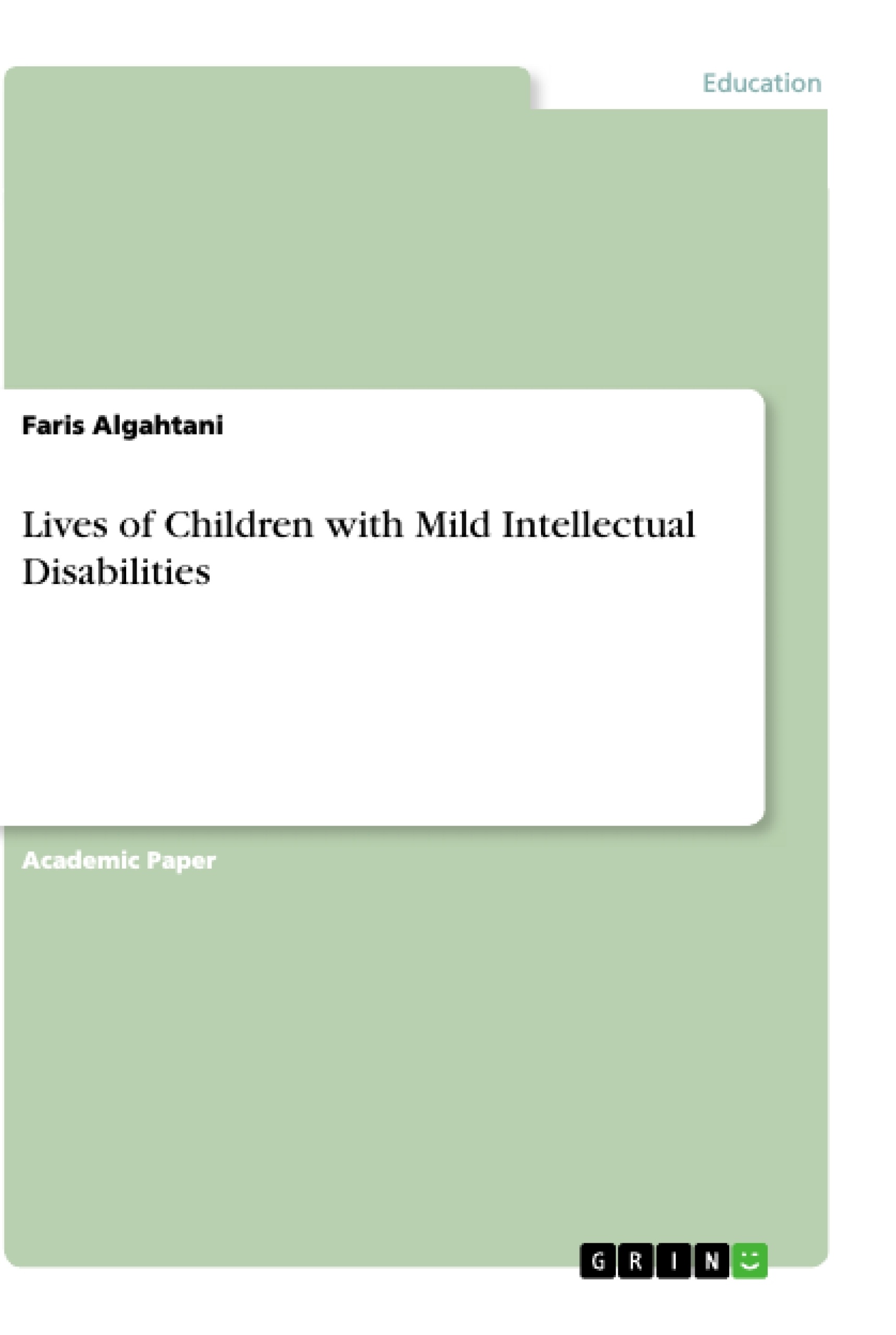Disability is an integral part of our lives. At some stage in life most people will be disabled either temporarily or permanently, with the elderly being more likely to face difficulties in functioning (World Health Organization, 2008). According to the World Health Survey (2010), approximately 785 million (15.6%) people in the world live with a disability, with the percentage of the population affected increasing with age; 3.4% of children aged from birth to four years and 8.8% of children aged from five to fourteen years have disabilities (World Health Organization, 2008). In 2009, the National Centre for Education Statistics indicated that more than 6.5 million children with disabilities in the Unites States received special education services in preschool under the Individuals with Disabilities Education Act (Snyder, 2012).
Inhaltsverzeichnis (Table of Contents)
- CHAPTER ONE: INTRODUCTION
- 1.1 Introduction
- 1.2 Purpose of the Study
- 1.3 Significance of the Study
- 1.4 Research Questions
- CHAPTER TWO: REVIEW OF RELATED LITERATURE
- 2.1 Overview of Education System in Saudi Arabia
- 2.2 Special Education
- 2.3 Policies and Legislations on Disability in Saudi Arabia
- 2.4 Non-Governmental Organizations Sectors (NGOs) in Saudi Arabia
- 2.5 Intellectual Disability
- 2.6 Early Childhood Intervention (ECI)
- 2.7 Steps and Models of Early Childhood Intervention in Saudi Arabia
- 2.8 Early Intervention Professionals Perceptions (EIPs)
- CHAPTER THREE: RESEARCH METHODOLOGY
- 3.1 Design of the Study
- 3.2 Philosophical Assumptions of the Study
- 3.3 The Role of Theory
- 3.4 Participants and Procedure
- 3.5 Data Collection
- 3.6 Data Analysis
- 3.7 Ethical Issues
Zielsetzung und Themenschwerpunkte (Objectives and Key Themes)
This study aims to investigate the experiences, attitudes, and needs of Early Intervention Professionals (EIPs) who work with children with Mild Intellectual Disabilities (MID) in Saudi Arabia. The study seeks to identify the barriers EIPs encounter and explore potential solutions to create successful inclusive general education settings for these children.
- The experiences and challenges faced by EIPs in providing services to children with MID
- The attitudes and perceptions of EIPs towards inclusive education for children with MID
- The needs of EIPs in terms of training, resources, and support to effectively work with children with MID
- The impact of cultural and societal factors on the education of children with MID in Saudi Arabia
- Strategies and best practices for inclusive education for children with MID in a general education setting
Zusammenfassung der Kapitel (Chapter Summaries)
The first chapter introduces the study and its purpose, highlighting the significance of providing appropriate education for children with intellectual disabilities, particularly MID. It establishes the context of the study, emphasizing the prevalence of MID in Saudi Arabia and the need for effective early intervention programmes.
The second chapter delves into the relevant literature, examining the educational system in Saudi Arabia and its policies regarding special education and disability. The chapter explores the role of non-governmental organizations (NGOs) and the current approaches to early childhood intervention (ECI) for children with disabilities.
The third chapter outlines the research methodology, detailing the study's design, philosophical assumptions, and theoretical framework. It describes the participants, data collection methods, and data analysis procedures used to investigate the research questions. The chapter also discusses the ethical considerations involved in the study.
Schlüsselwörter (Keywords)
The study focuses on key terms such as early intervention, Mild Intellectual Disabilities (MID), inclusive education, EIPs, Saudi Arabia, educational policies, training needs, and best practices. It explores the intersection of these concepts within the context of providing quality education for children with disabilities in a culturally diverse environment.
- Citar trabajo
- Faris Algahtani (Autor), 2020, Lives of Children with Mild Intellectual Disabilities, Múnich, GRIN Verlag, https://www.grin.com/document/540500




